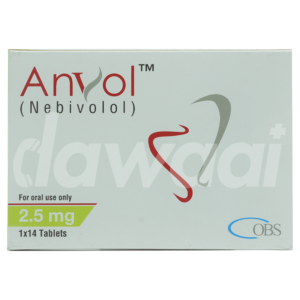Introduction
How To Use
- Insulin is normally injected under the skin with a small needle.
- Insulin pens can also be used to take insulin.
- Your doctor will teach you how to inject insulin properly.
- Clean your skin properly before injecting.
- Pinch hold the injection site.
- Inject the insulin at 90 degrees with a syringe or pen.
Expert Advice
- Please do not use this medicine unless it is prescribed to you by your health care provider.
- Please immediately inform the doctor in case of any adverse effects of this medicine.
- Please do not share this medicine with anyone.
- Lifestyle changes can help this medicine work effectively therefore it is advised to take low fat and healthy diet.
Primary Uses
Type I and II Diabetes
Indications
This medicine/hormone is used for treating the following:
- Diabetes Mellitus type 1: The onset of this type is juvenile. It may be associated with loss of weight. In this condition, the body produces little or no insulin. Insulin is given intravenously or orally to manage glucose levels.
In this type, only management of diet is not sufficient. Use of insulin is must.
- Diabetes Mellitus type 2: This type has a late onset and usually occurs in individuals above 40 years of age. In this condition, the body may produce insulin normally but the cells become irresponsive. In this, diet management plays a major role in controlling glucose levels.
Note: The normal level of glucose for a diabetic is 140 mg/dl.
Side Effects
Patients using this medicine might experience:
- Hypoglycemia
- Weight gain
- Injection site thickness
- Injection site allergic reaction
- Swelling in hands or feet.
Warnings
 Pregnancy
Pregnancy
This medicine can be used in pregnancy. However, please consult your doctor before use.
 Lactation
Lactation
This medicine passes into breast milk and is unlikely to harm an infant. Consult your health care provider before use of this medicine.
 Driving
Driving
High or low blood sugar can cause dizziness, blurred vision, and drowsiness. Avoid driving if you’re dependent on insulin for controlling blood sugar.
 Liver
Liver
This medicine should be used with caution in liver patients. Consult your doctor for more information.
 Kidney
Kidney
This medicine should be used with caution in kidney patients. Consult your doctor for more information.
 Alcohol
Alcohol
Avoid alcohol consumption when using this medicine. It is considered unsafe.
 Precautions
Precautions
Before using this medicine, inform your doctor about your complete medical history; especially about liver, kidney, and thyroid diseases. Inform your doctor about the use of oral hypoglycemic and all other medicines. Carry a source of sugar in case of decreased blood sugar levels. Do not quit this medicine without informing your doctor. Do not share this medicine with anyone. Do not double the dose, it may lead to severe hypoglycemia.
Contraindications
The patients with allergies to any of the medicine’s components should avoid use of this medicine. Please consult your doctor for further guidance.
FAQS
What is Insulin?
Insulin is a hormone made naturally by the body but in Diabetes Mellitus, it may be given orally or injected to bring down increased glucose levels. Glucose is a sugar produced by the body by breakdown of carbohydrates.
Indications:
This medicine/hormone is used for treating the following: 1. Diabetes Mellitus type 1: The onset of this type is juvenile. It may be associated with loss of weight. In this condition, the body produces little or no insulin. Insulin is given intravenously or orally to manage glucose levels. In this type, only management of diet is not sufficient. Use of insulin is must. 2. Diabetes Mellitus type 2: This type has a late onset and usually occurs in individuals above 40 years of age. In this condition, the body may produce insulin normally but the cells become irresponsive. In this, diet management plays a major role in controlling glucose levels. Note: The normal level of glucose for a diabetic is 140 mg/dl.
What are the types of Insulin?
• Rapid-acting insulin
• Short-acting insulin
• Intermediate acting insulin
• Long-acting insulin
• Premixed/combination insulin.
How to store this medicine?
For directions for storage of this medicine, please read the package labeling provided. Keep the oral form of this medicine away from excessive light and moisture. Please keep it away from children. Refrigerate the injectable form.
Side Effects:
Following are the side effects of using this medicine: High blood pressure Signs of kidney problem such as change in urine output
Precautions:
Following are the precautions for use of this medicine: Asthma Drink plenty of fluids to prevent dehydration Limit alcohol and smoking Use of sun screen Keep a glucagon kit with you to prevent severe hypoglycemia Do not use other medicines without consulting your doctor first
Effects on pregnancy and lactation:
This medicine can be used in pregnancy. This medicine passes into breast milk and is unlikely to harm an infant. Consult your health care provider before use of this medicine.
Important notes.
Please do not use this medicine unless it is prescribed to you by your health care provider. Please immediately inform doctor in case of any adverse effects of this medicine. Please do not share this medicine with anyone. Life style changes can help this medicine work effectively therefore it is advised to take a low fat and healthy diet.
Disclaimer
Dawaai’s intention is to make sure that it’s consumers get information that is accurate, reviewed by an expert and error-free. However, the information mentioned here should not be used as a replacement for the advice of a qualified physician. The information given here is for informational purposes only, which may not cover all possible precautions, side effects, contraindications or drug interactions. Consult your doctor and discuss your queries related to any medicine or disease.






Reviews
There are no reviews yet.